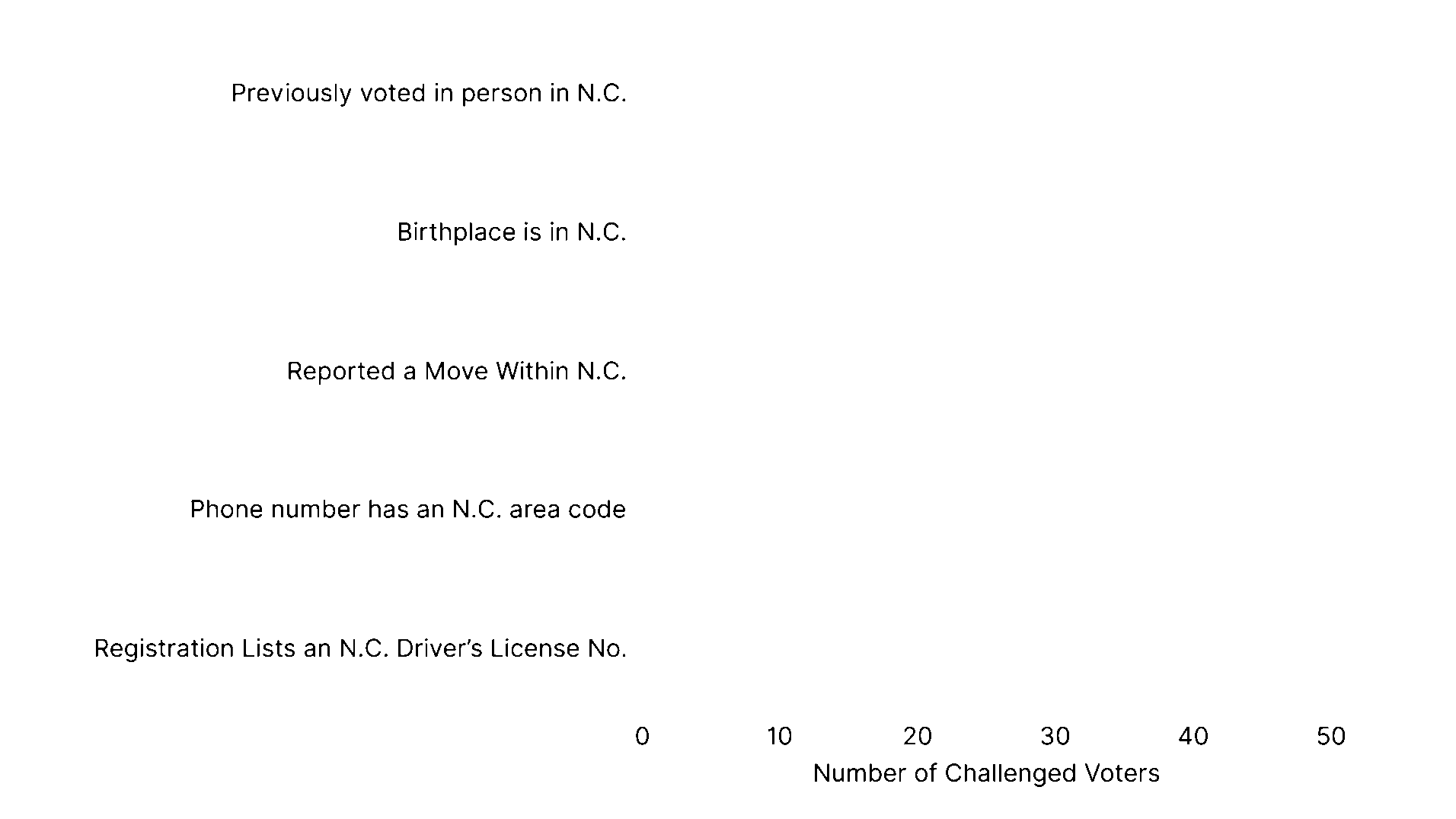VOTING RIGHTS
Background
The election protest brought by Judge Jefferson Griffin, seeking to throw out thousands of ballots from the 2024 General Election, is still making its way through the Courts. On April 11, 2025, the North Carolina Supreme Court ruled that the ballots of overseas voters who checked a box indicating they “are a U.S. citizen living outside the country” but “have never lived in the United States” could be removed from the final count of the 2024 election for Supreme Court Seat 6. These voters, who include the children of military service members abroad, voted pursuant to a 2011 North Carolina law that was in effect, and unchallenged, before that election. Judge Griffin asked that the law be retroactively struck down under the North Carolina constitution to exclude the ballots of those individuals.

The Fight Over Alleged "Never-Residents"
The State Board of Elections has indicated it will review its own data to determine whether the 260 alleged “never residents” challenged by Griffin actually have lived in North Carolina before voting and, if they have, will allow those ballots to stay in the count. The State Board also intends to give voters an opportunity to affirm they have lived in North Carolina, and to count any ballots for voters who do. On April 16, Judge Griffin went back to the North Carolina Court of Appeals to prevent the State Board from counting the ballots of voters who mistakenly checked the box and to prevent voters from demonstrating that they have, in fact, lived in North Carolina previously. He also asked to expand the list of challenged “Never-Residents” from the current number that is limited to 53 counties to all 100.*
SCSJ’s Analysis
Researchers at SCSJ used public elections data to determine how many of the 260 alleged “never-residents” have some indications in their background that they lived in North Carolina.
We found that 25% (65 out of 260) of the challenged “Never-Resident” voters have one or more residency indicators showing evidence of having lived in North Carolina.
These voters were identified using publicly-accessible data. It is possible that the State Board of Elections can identify even more voters with some indication of prior residency utilizing its own confidential voter and election data files.
Excluding these ballots without any inquiry into the voter’s personal circumstance risks disenfranchising eligible North Carolinians, even under Judge Griffin’s alternative interpretation of the laws of eligibility.
About the data
SCSJ analyzed the list of challenged voters released by the State Board of Elections to produce the above totals. First, we removed seven duplicates from the public list, resulting in 260 unique voters challenged as “Never-Residents.” Next, we joined this list with the Current Voter History File to identify voters who have previously voted in person during Early Voting or on Election Day.
Then, we joined the challenge list with the 1/1/2025 VR Snapshot file from the State Board. Voters with a birthplace in North Carolina were identified as those with the “birth_place” field coded as “NC.” Voters who have reported a move within the state were identified as those with a “voter_status_reason_desc” code of “Moved Within State.” Voters with a phone number including a North Carolina area code were identified in the “area_cd” field.
Finally, the challenge list was joined to the Current Voter Registration File to identify voters who have a “Y” in the “drivers_lic” field, indicating that they have a North Carolina driver’s license.
*As of the date of this release, Judge Griffin’s request to expand the number of challenged votes remains pending at the N.C. Court of Appeals. Federal court litigation on the legality of these voter challenges is also ongoing.
Need Help?
Want to receive updates from SCSJ about this case? Are you a challenged voter with more questions? Let us know by completing this form.

